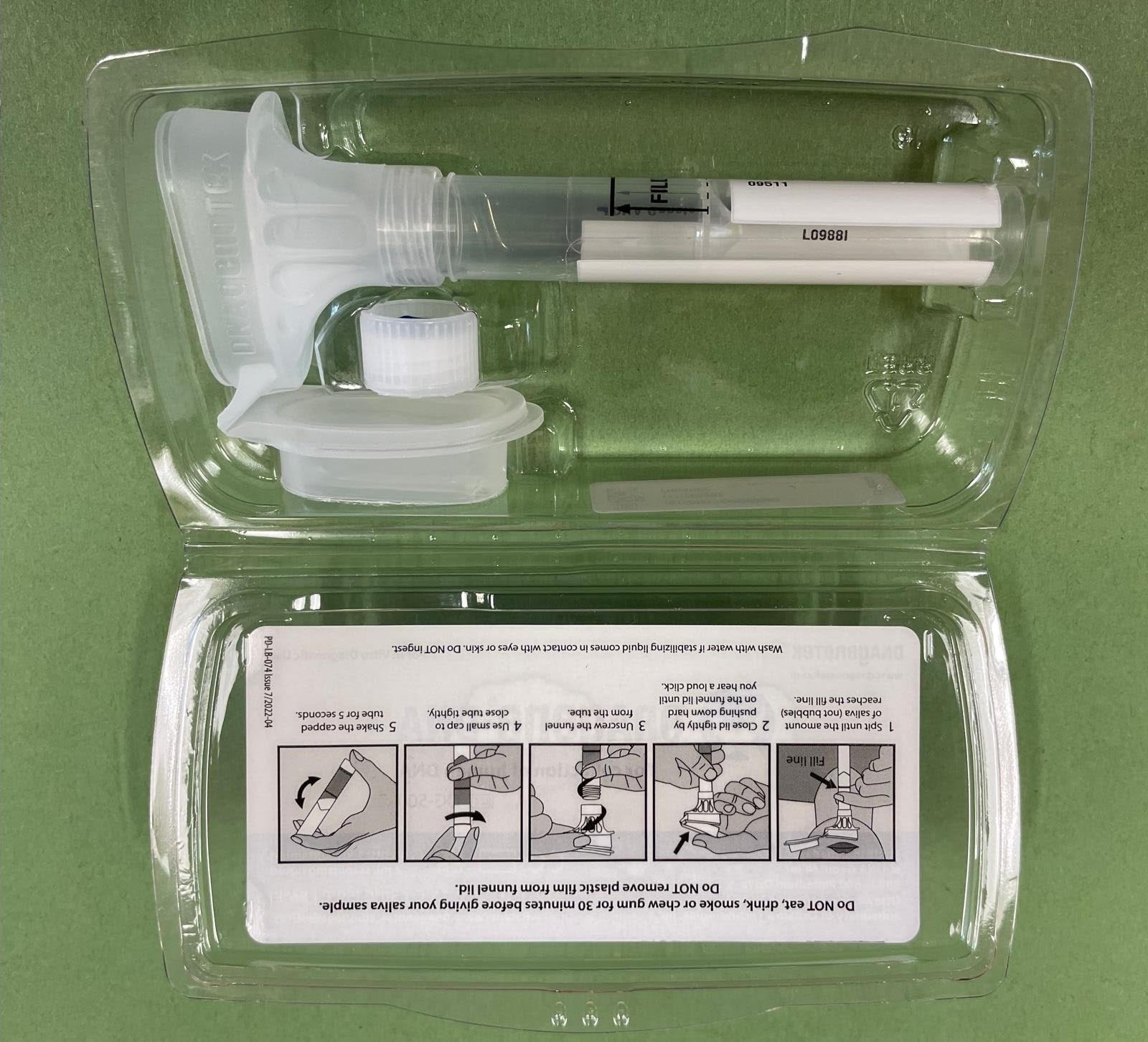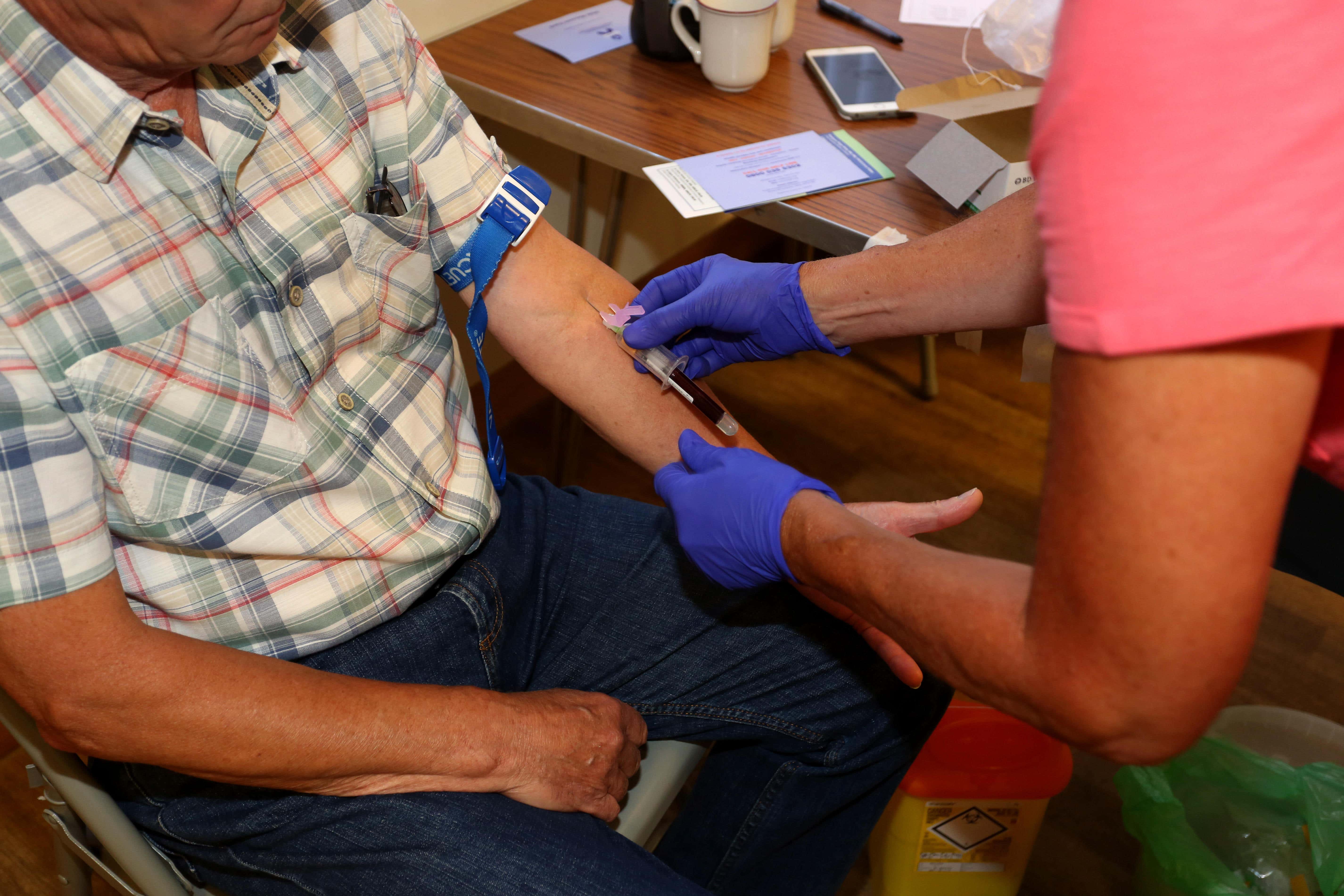A new at-home saliva test for prostate cancer could outperform current testing methods, a new study suggests.
Researchers have developed a simple spit test, that can be performed at home and does not require a visit to the GP, which analyses genetic variants in a man's DNA.
The test has appeared to perform better than the current method for assessing prostate cancer risk in the new study which could significantly improve early detection and the treatment of prostate cancer.
The prostate-specific antigen (PSA) test is a blood test currently used to check for prostate conditions such as prostate cancer or an enlarged prostate.
While available upon request for men over 50 or if a GP suspects prostate cancer, routine PSA testing isn't offered by the NHS.
There have been an increasing number of calls for the test to be rolled out across the health service and officials have been assessing the feasibility of a prostate cancer screening programme.
But some have argued that widespread use of the test could identify cases which may not have caused problems or needed treatment.

The new saliva test could be used as an additional screening tool, experts said, as it reduced the number of false positive results and picked up a higher proportion of aggressive cancers than the PSA test.
This means the use of the test could lead to fewer men being sent for unnecessary testing, they added.
Researchers at The Institute of Cancer Research, London, and The Royal Marsden NHS Foundation Trust wanted to assess the effectiveness of a new tool they had developed called a polygenic risk score.
This risk score uses spit to assess 130 genetic variants known to be associated with an increased risk of prostate cancer and then determine whether or not a person is at high risk of the disease.
The new trial used the tool to assess 6,300 men aged 55 to 69 in the UK.
Some 745 (12 per cent) were deemed to have a high risk score during the study, nicknamed Barcode 1.
These men were invited to have prostate cancer screening including an MRI scan and a biopsy, with some 468 taking up the offer.

Prostate cancer was detected in 187 men and, of these, 103 had cancer that was deemed to be “higher risk”, so treatment was offered.
Of the 187 men, 118 had a PSA level below 3.0ug/L – which is considered “normal” and would usually indicate that no further screening is required.
Writing in the New England Journal of Medicine, researchers said cancer “would not have been detected” in 74 of these men using the “diagnostics pathway” currently in use in the UK – which includes a high PSA level and an MRI.
Experts concluded that for the men with the highest genetic risk, the test falsely identified fewer people with prostate cancer than the PSA test.
It also picked up people with cancer who would have been missed by the PSA test alone and it detected a higher proportion of the aggressive cancers than the PSA test.
The test also accurately identified men with prostate cancer that were missed by an MRI scan.
A separate trial has been launched which will directly compare the saliva tests to the PSA test and an MRI scan.
Professor Ros Eeles, from the Institute of Cancer Research, London, and The Royal Marsden NHS Foundation Trust, said: “With this test, it could be possible to turn the tide on prostate cancer.
“We have shown that a relatively simple, inexpensive spit test to identify men of European heritage at higher risk due to their genetic make-up is an effective tool to catch prostate cancer early.
“Building on decades of research into the genetic markers of prostate cancer, our study shows that the theory does work in practice – we can identify men at risk of aggressive cancers who need further tests and spare the men who are at lower risk from unnecessary treatments.”
Prostate cancer symptoms
NHS
Symptoms of prostate cancer can include:
- needing to pee more frequently, often during the night
- needing to rush to the toilet
- difficulty in starting to pee (hesitancy)
- straining or taking a long time while peeing
- weak flow
- feeling that your bladder has not emptied fully
- blood in urine or blood in semen
Professor Kristian Helin, chief executive of The Institute of Cancer Research, London, said: “With prostate cancer cases expected to double by 2040, it’s crucial to establish a robust way of picking up clinically significant cases of prostate cancer at an earlier stage.
“The current PSA test often leads to unnecessary treatments and, more concerningly, fails to detect some cancers. There is an urgent need for a better screening test.
“This research represents a promising advancement towards that goal and underscores the life-saving potential of genetic testing.”
Naser Turabi, from Cancer Research UK, said: “Right now, there’s no reliable method to detect aggressive prostate cancer, but this study brings us a step closer to finding the disease sooner in those people who need treatment.”
Researchers have estimated that the spit test could identify up to 12,350 people earlier, saving the NHS around £500 million a year.
Dr Matthew Hobbs, from Prostate Cancer UK, said the next trial comparing saliva tests with the PSA test and an MRI scan “will test this genetic risk approach to make sure it works at scale, and for men of all ethnicities”.
Prostate Cancer UK has called for guidelines to be changed so GPs can have “proactive” discussions about getting tested with men at highest risk of the disease.
Around 55,000 cases of prostate cancer are diagnosed each year in the UK, with some 12,000 men die from the disease, according to Cancer Research UK figures.
At a separate event, experts said that the “evidence is not there yet” to support a national screening programme.
Jenny Donovan, professor of social medicine at the University of Bristol, said: “The key criterion for screening from the National Screening Committee is that the benefit gained by individuals from the screening programme should outweigh any harms.
“And we think the evidence shows that we’re not there yet, and more research is needed.”
Freddie Hamdy, professor of urology at the University of Oxford, said the UK is “not an outlier” by not having a screening programme – with only Lithuania and Mexico having schemes in place.
Prof Hamdy also said that because prostate cancer “grows so slowly”, previous studies have taken “20 years” to report back.







